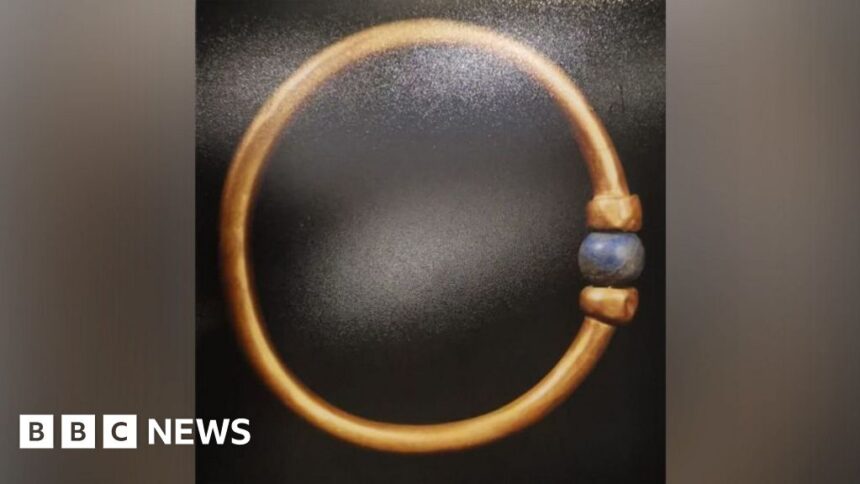Authorities in Egypt are currently investigating the mysterious disappearance of a rare 3,000-year-old gold bracelet from a prominent museum in Cairo. This exquisite piece, embellished with spherical lapis lazuli beads, is believed to date back to the reign of King Amenemope, a pharaoh of the 21st Dynasty who ruled from 993 to 984 BC.
The Egyptian Ministry of Antiquities has reported that immediate actions were taken following the bracelet’s vanishing, with the case being referred to the police for further investigation. As a precautionary measure, images of the bracelet have been distributed to all airports, seaports, and land border crossings in an effort to thwart any potential smuggling attempts.
In response to the incident, a specialized committee has been established to conduct a thorough inventory and review of all artifacts housed in the restoration laboratory where the bracelet was last located. Despite the ongoing inquiries, the ministry has not disclosed the specifics surrounding when the bracelet was last seen, indicating that the timing of the announcement was intentionally delayed to foster a more conducive environment for the ongoing investigations.
According to reports from the Egyptian newspaper Al-Misri al-Yawm, the bracelet’s absence was discovered during recent preparations by museum staff to ship numerous artifacts to Rome for an upcoming exhibition scheduled to open next month.
The Egyptian Museum, known as the oldest archaeological museum in the Middle East, contains over 170,000 artifacts, including Amenemope’s gilded wooden funerary mask. The disappearance of such a significant piece of history is particularly alarming as it occurs just six weeks before the unveiling of the Grand Egyptian Museum in nearby Giza, where internationally acclaimed treasures from King Tutankhamun’s tomb are set to be showcased.
As investigations continue, the loss of this historical artifact has raised concerns about the security protocols in place for managing Egypt’s rich cultural heritage and the safeguarding of its ancient treasures.







